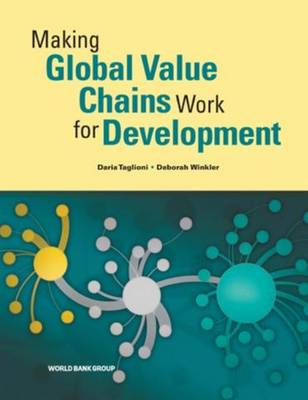Trade and Development
2 total works
Trade Competitiveness Diagnostic Toolkit
by Daria Taglioni, Jose Daniel Reyes, and Filipe Lage de Sousa
Published 30 January 1900
As globalisation progresses and investment becomes more mobile, it is ever more important for policy makers to understand which firms constitute the domestic economy, and how they are affected by policy. This toolkit offers a framework, guidelines, and practical tools for conducting an analysis and diagnostic of trade competitiveness using firm-level data. The toolkit will show how firm-level analysis can be used to complement and integrate analyses based on more aggregate data, and deliver richer and more focused assessments of countries' competitiveness. Going beyond descriptive statistics, the proposed framework suggests a coherent and comprehensive method of using firm-level data for assessing the competitiveness of the export sector and its sustainability. This volume presents a selection of tests to assess trade outcomes and an econometric methodology to link these to their main determinants.
Making Global Value Chains Work for Development
by Daria Taglioni and Deborah Winkler
Published 10 June 2016
Economic, technological, and political shifts as well as changing business strategies have driven firms to unbundle production processes and disperse them across countries. Thanks to these changes, developing countries can now increase their participation in global value chains (GVCs) and thus become more competitive in agriculture, manufacturing and services. This is a paradigm shift from the 20th century when countries had to build the entire supply chain domestically to become competitive internationally. For policymakers, the focus is on boosting domestic value added and improving access to resources and technology while advancing development goals.However, participating in global value chains does not automatically improve living standards and social conditions in a country. This requires not only improving the quality and quantity of production factors and redressing market failures, but also engineering equitable distributions of opportunities and outcomes - including employment, wages, work conditions, economic rights, gender equality, economic security, and protecting the environment. The internationalization of production processes helps with very few of these development challenges. Following this perspective, Making Global Value Chains Work for Development offers a strategic framework, analytical tools, and policy options to address this challenge. The book conceptualizes GVCs and makes it easier for policymakers and practitioners to discuss them and their implications for development. It shows why GVCs require fresh thinking; it serves as a repository of analytical tools; and it proposes a strategic framework to guide policymakers in identifying the key objectives of GVC participation and in selecting suitable economic strategies to achieve them.

